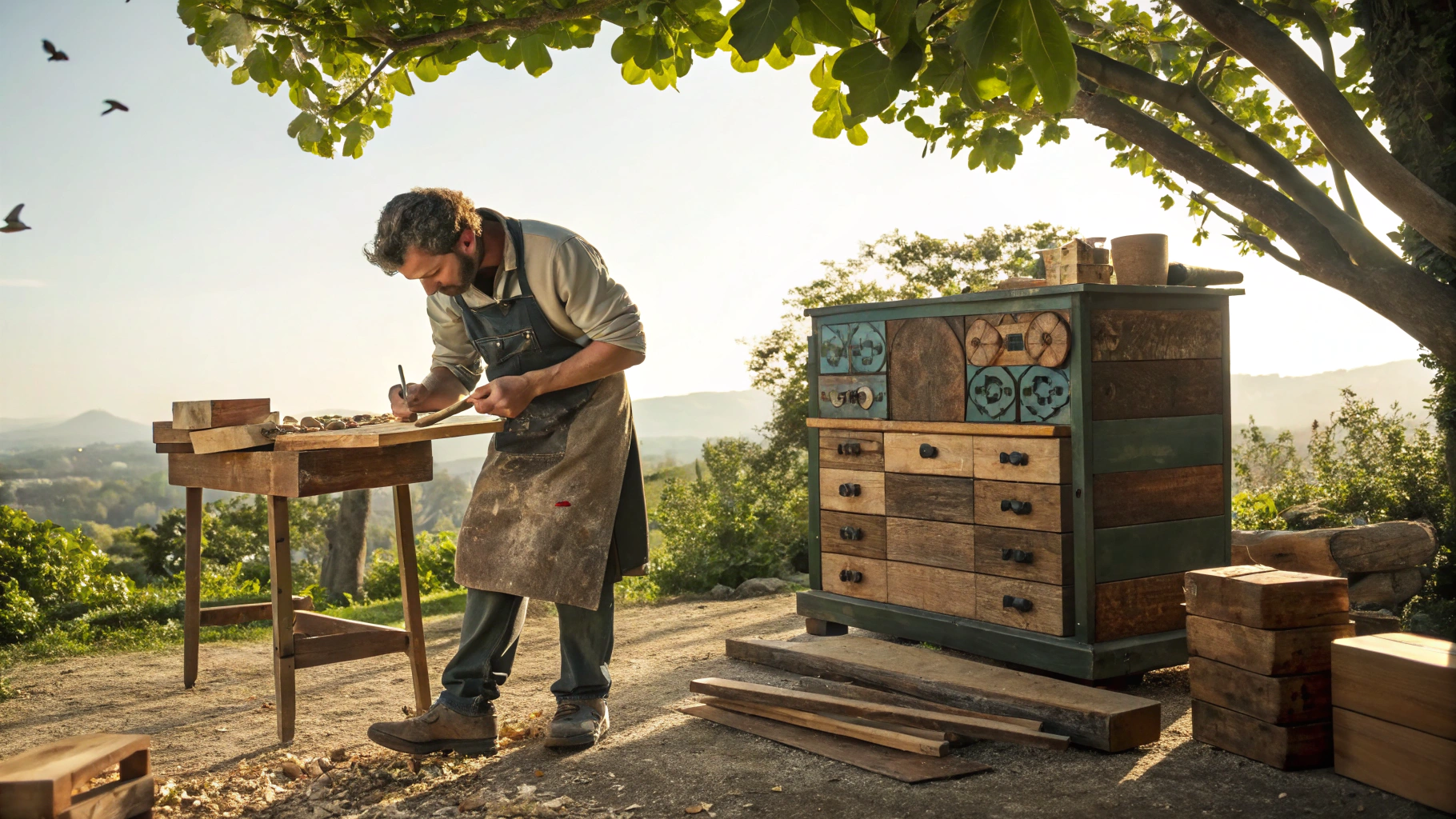Skilled trades careers are redefining what it means to build a meaningful, hands-on profession. From designing digital experiences to shaping glass into functional art, these roles combine technical expertise with imaginative problem-solving. Let’s explore how artistic minds can thrive in trades that value innovation as much as execution.
Top Skilled Trades Careers for Creative Thinkers
For those who crave both artistry and tangible results, these five careers stand out:
-
Graphic Designer: Graphic designers turn ideas into visual stories, crafting logos, ads, and branding materials. With a national average salary of $50,656 1, this role thrives on balancing aesthetics with client goals.

-
Web Developer: Web developers merge coding skills with design intuition to build sleek, user-friendly sites. In tech hubs like Austin or Seattle, salaries often exceed $75k 2, driven by demand for digital innovation.

-
Multimedia Animator: Animators breathe life into stories for films, games, and ads using tools like Blender. Take Jake, a former architect who pivoted to animation:
“It’s like engineering emotions frame by frame.”
-
UX Designer: UX designers ensure apps and websites are both functional and beautiful. Their secret weapon? Empathy. By mapping user journeys, they solve problems while making interfaces visually compelling.
-
Glassblower: This ancient craft lets artisans shape molten glass into vases, sculptures, or even scientific instruments. No degree required, just apprenticeship grit. Sarah Lyons, a studio owner in Oregon, says,
“Every piece is a dance between control and spontaneity.”

Artistic vs. Traditional Trades: Where Creativity Meets Craft
Not all trades are created equal. Here’s how artistic roles differ:
Skills That Set Them Apart: Artistic trades like jewelry-making demand originality and an eye for detail. A sculptor might spend weeks perfecting a bronze texture, while a construction painter follows strict codes for safety coatings 3. Both require skill, but the former prioritizes self-expression.
Learning the Ropes: Artistic paths often start in classrooms or studios. Degrees in fine arts or design teach color theory and business basics, while traditional trades lean on apprenticeships. Programs like Arts2Work blend both and offers media arts training through hands-on projects instead of lectures 4.
Creative Vocational Work: Hands-On Artistry in Action
Forget the starving artist trope. These trades prove creativity pays:
- Jewelry Design: Melds metallurgy with artistry. Laser-cutters now let designers like Rajiv Kapoor create intricate patterns once impossible by hand.
- Sustainable Woodworking: Crafters like Mia Chen use reclaimed timber to build tables that double as sculptural statements.
“Wood has a memory,” she says. “My job is to honor it.”
How Design-Driven Trades Fuel Innovation
Good design should both be pretty and profitable. Companies like IKEA and Apple credit design-first strategies for 30%+ revenue growth 5. Real-world examples:
- UX in E-Commerce: Streamlined checkout designs can boost sales by 35% 6.
- 3D Printing: Jewelers like Elena Rodriguez use it to prototype designs faster, slashing costs by 40% 7.
The result? A design thinking market projected to hit $12.58 billion by 2034 8.
Learning Pathways: From Classroom to Studio
Today’s training blends creativity with job readiness:
Arts2Work Apprenticeship: This program skips theory for real-world media projects. Graduate Tamara Greene notes,
“I learned more editing documentaries in three months than in two years of film school.”
CreativeWorks Pre-Apprenticeship: A 22-week bootcamp for teens offers tracks in digital media or theater tech. Participants earn while mastering Photoshop, stage lighting, and résumé writing.
Why Artistry Matters in Everyday Trades
Creative skills elevate even “traditional” roles:
-
Landscapers become eco-artists, designing rain gardens that manage stormwater while blooming with native plants.
-
Carpenters like Luis Mendez craft built-in bookshelves with hidden compartments, proving functionality and flair aren’t mutually exclusive.

As interior designer Clara Nguyen puts it:
“Clients don’t hire me to pick paint colors. They hire me to turn their ‘what ifs’ into ‘wow.’”
Tech’s Role in Modern Craftsmanship
Tools are transforming trades:
- AI Prototyping: Apps like MidJourney help glassblowers visualize designs before firing up the furnace.
- VR for Architects: Strap on a headset to “walk through” a kitchen remodel pre-construction.
This tech shift attracts Gen Zs. 31% say digital tools make trades more appealing.
Building a Career That Grows With You
Creative trades offer surprising flexibility:
- From Freelancer to CEO: Animator-turned-CEO Dev Patel started on Fiverr; now his studio employs 12 artists.
- Teaching the Next Gen: Woodworker Grace Lee hosts $200/seat workshops on sustainable furniture design.
Breaking Stereotypes: Trades Gain Ground
Post-pandemic, 68% of households view trades more favorably 9. Yet challenges linger:
- The Pay Paradox: Glassblowing offers freedom but inconsistent income. Most artists diversify, teaching classes or selling DIY kits.
- Closing the Gap: Women are 22% of tradespeople, but groups like Women in Skilled Trades are changing that through mentorship.
Your Next Move
Skilled trades careers aren’t plan B, but a launchpad for creatives who want to build, design, and problem-solve. Ready to start?
- Audit Your Skills: Love sketching? Explore CAD drafting. Enjoy puzzles? UX design might fit.
- Try a Micro-Course: Platforms like CreativeLive offer $29 classes in jewelry-making or web design.
- Find Mentors: Connect with local artisans via guilds or TikTok hashtags like #CraftingCareer.
The future belongs to makers who can dream and do. Where will your hands take you?

